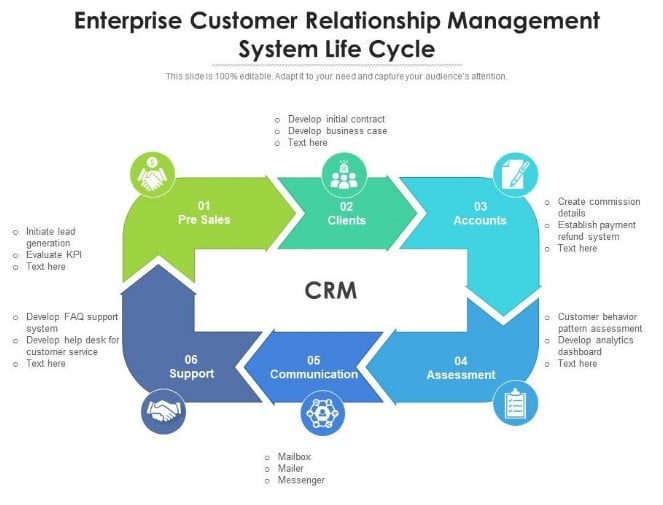The Do’s and Don’ts of CRM Implementation
The Do’s and Don’ts of CRM Implementation – Customer Relationship Management (CRM) is a crucial aspect of running a successful business. Implementing CRM can help streamline communication, increase customer satisfaction, and ultimately, boost revenue.
However, implementing a CRM system is not a one-size-fits-all solution, and businesses need to be mindful of certain do’s and don’ts to ensure a successful implementation. In this article, we will discuss the key do’s and don’ts of CRM implementation.
Understanding the Basics of CRM
Before diving into the do’s and don’ts of CRM implementation, it’s essential to understand the basics of CRM. CRM refers to the process of managing interactions with customers to improve business relationships, customer retention, and sales growth. It involves collecting customer data, analyzing it, and using it to make informed business decisions. CRM can be implemented through software solutions, which automate many of the processes involved in managing customer interactions.
The Do’s of CRM Implementation
1. Define Your Objectives
Before implementing a CRM system, it’s essential to define your objectives. What do you want to achieve through CRM? Is it to improve communication with customers, increase sales, or streamline processes? Clearly defining your objectives will help you select the right CRM solution and ensure that you are using it to its full potential.
2. Involve Your Employees
Implementing a CRM system requires a team effort. Involve your employees in the implementation process, as they will be the ones using the system on a day-to-day basis. Encourage them to provide feedback and suggestions to ensure that the CRM system meets their needs.
3. Choose the Right CRM Solution
There are many different CRM solutions available, each with its own set of features and capabilities. Choose a CRM solution that is tailored to your business needs and objectives. Ensure that the CRM system is easy to use, integrates with your existing systems, and provides the necessary level of security.
4. Provide Adequate Training
Providing adequate training is crucial to the success of CRM implementation. Ensure that your employees receive comprehensive training on how to use the CRM system. This will not only help them use the system effectively but also increase their confidence and job satisfaction.
5. Set Realistic Goals
Setting realistic goals is essential to the success of CRM implementation. Don’t expect immediate results; instead, set realistic goals and monitor progress over time. This will help you identify areas for improvement and ensure that you are getting the most out of your CRM system.
The Don’ts of CRM Implementation
1. Don’t Ignore Data Quality
Data quality is critical to the success of CRM implementation. Poor-quality data can lead to inaccurate insights and flawed decision-making. Ensure that your data is clean, accurate, and up-to-date before implementing a CRM system. This will help you make informed business decisions and improve customer satisfaction.
2. Don’t Neglect User Adoption
User adoption is crucial to the success of CRM implementation. If your employees don’t use the system, it will not provide any benefits. Ensure that the CRM system is easy to use, and provide adequate training and support to encourage user adoption.
3. Don’t Overcomplicate the System
Overcomplicating the CRM system can lead to confusion and frustration among employees. Keep the system simple and intuitive, and avoid unnecessary complexity. This will not only improve user adoption but also make it easier to manage and maintain the system.
4. Don’t Skimp on Security
Security is critical when it comes to CRM implementation. Ensure that the CRM system provides adequate security measures to protect customer data. This includes measures such as data encryption, secure authentication, and access controls.
5. Don’t Forget to Monitor
Monitoring the CRM system is crucial to its success. Regularly review the system to ensure that it is meeting your business needs and objectives. Monitor key performance indicators, such as customer satisfaction, sales growth, and employee adoption, to identify areas for improvement and make informed decisions.
Conclusion
CRM implementation is a critical aspect of running a successful business. However, implementing a CRM system is not a one-size-fits-all solution, and businesses need to be mindful of certain do’s and don’ts to ensure a successful implementation. The key do’s of CRM implementation include defining your objectives, involving your employees, choosing the right CRM solution, providing adequate training, and setting realistic goals.
On the other hand, the don’ts of CRM implementation include not ignoring data quality, neglecting user adoption, overcomplicating the system, skimping on security, and forgetting to monitor. By following these do’s and don’ts, businesses can implement a CRM system that streamlines communication, increases customer satisfaction, and ultimately, boosts revenue.
FAQs
What is CRM, and why is it essential for businesses?
CRM refers to the process of managing interactions with customers to improve business relationships, customer retention, and sales growth. It is essential for businesses as it helps streamline communication, increase customer satisfaction, and boost revenue.
What are the key do’s of CRM implementation?
The key do’s of CRM implementation include defining your objectives, involving your employees, choosing the right CRM solution, providing adequate training, and setting realistic goals.
What are the key don’ts of CRM implementation?
The key don’ts of CRM implementation include not ignoring data quality, neglecting user adoption, overcomplicating the system, skimping on security, and forgetting to monitor.
Why is data quality crucial for the success of CRM implementation?
Poor-quality data can lead to inaccurate insights and flawed decision-making. Ensuring that your data is clean, accurate, and up-to-date before implementing a CRM system can help you make informed business decisions and improve customer satisfaction.
How can businesses monitor the success of their CRM system?
Businesses can monitor the success of their CRM system by regularly reviewing the system to ensure that it is meeting their business needs and objectives. They can also monitor key performance indicators, such as customer satisfaction, sales growth, and employee adoption, to identify areas for improvement and make informed decisions.
